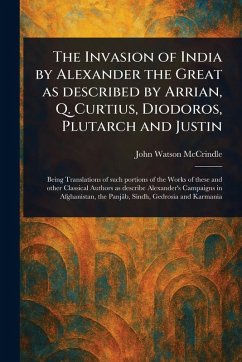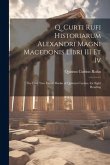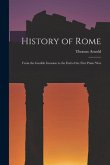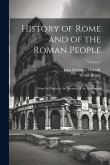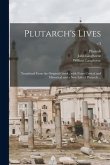Witness history unfold through the eyes of those who observed it firsthand. "The Invasion of India by Alexander the Great as described by Arrian, Q. Curtius, Diodoros, Plutarch and Justin," compiled by J. W. M'Crindle, offers a unique perspective on a pivotal moment in ancient history. Delve into the classical accounts of Alexander's campaign in India, exploring the clash of Ancient Greece with the Indian subcontinent. This collection of historical sources illuminates the strategies, challenges, and consequences of Alexander's ambitious eastward expansion. Explore the narratives crafted by these influential historians, providing a multi-faceted view of Alexander's military campaigns and their impact on the ancient world. A cornerstone resource for understanding Ancient Greece, Ancient Rome, and the early history of India, this volume allows readers to directly engage with the texts that have shaped our understanding of Alexander the Great's legacy. A valuable resource for anyone interested in historical invasions, ancient warfare, and the interaction between cultures in antiquity. This work has been selected by scholars as being culturally important, and is part of the knowledge base of civilization as we know it. This work is in the public domain in the United States of America, and possibly other nations. Within the United States, you may freely copy and distribute this work, as no entity (individual or corporate) has a copyright on the body of the work. Scholars believe, and we concur, that this work is important enough to be preserved, reproduced, and made generally available to the public. We appreciate your support of the preservation process, and thank you for being an important part of keeping this knowledge alive and relevant.
Bitte wählen Sie Ihr Anliegen aus.
Rechnungen
Retourenschein anfordern
Bestellstatus
Storno

